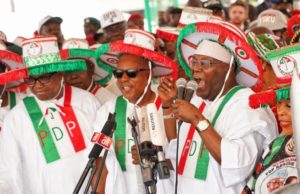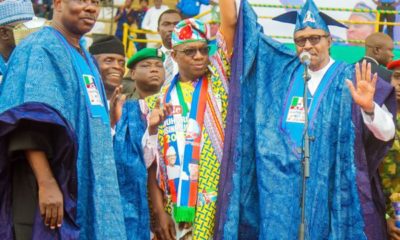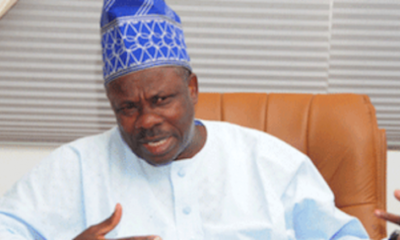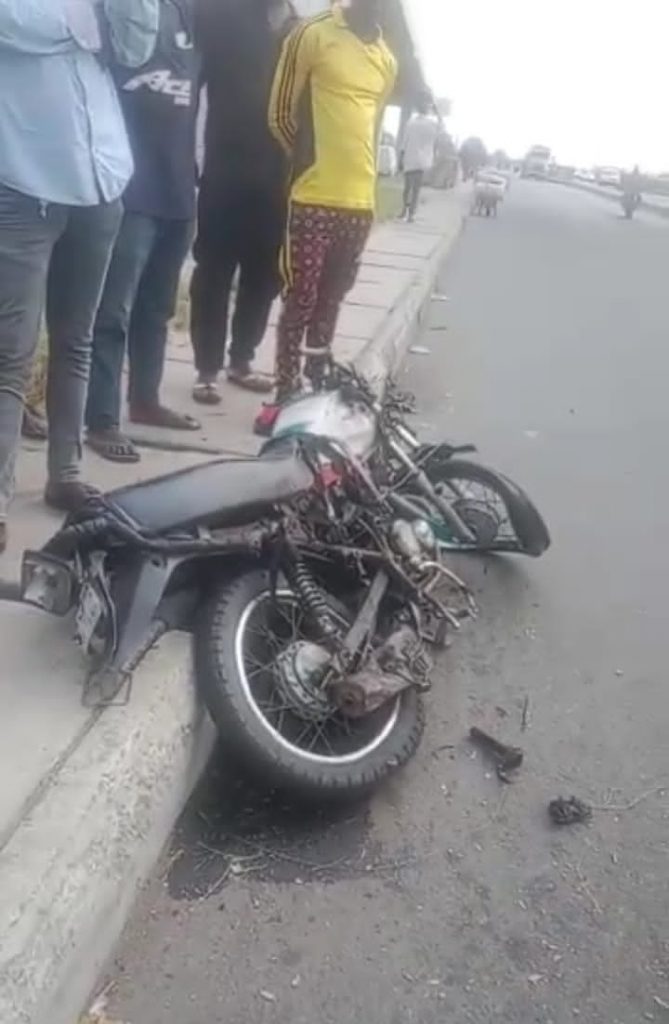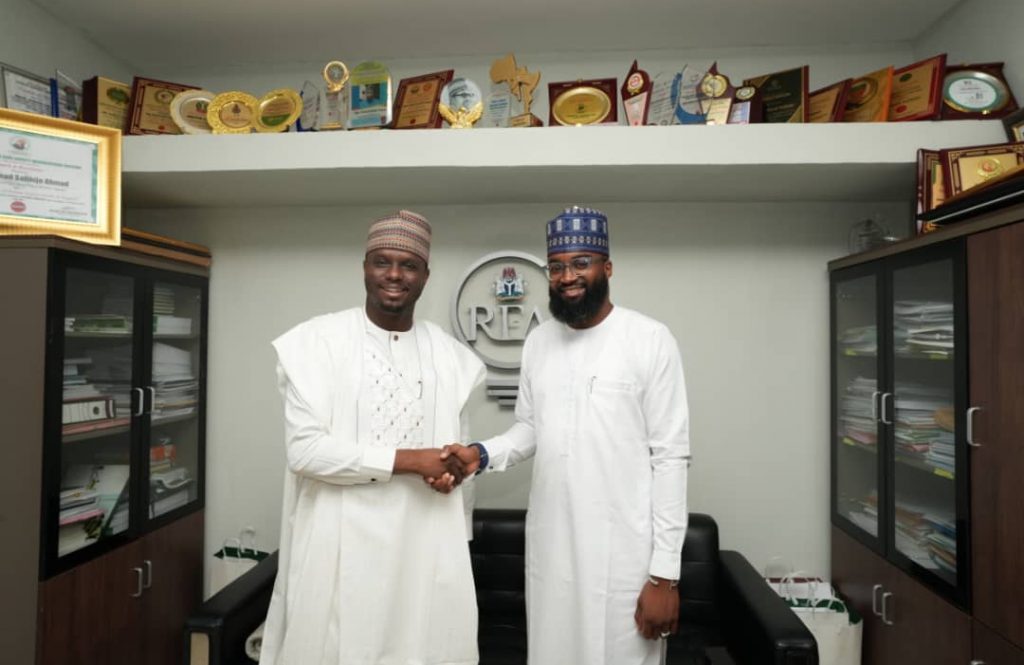Eniola Olayemi
Presidential candidate for the PDP says he has a plan to turbo-charge Nigeria’s economy and generates millions of jobs.
I have been in politics for some time and I have never hidden my ambition to be president. My motivation is simple: I believe I have the experience and ideas to help Nigeria move in the right direction and achieve its potential.
Nigeria is a country that has been blessed with rich natural and human resources, although it has often been said oil has been “more of a curse than a help”. Well, with the changes already being made globally to drastically reduce our carbon energy consumption, it is a curse that will not be with us much longer.
Given that so much of Nigeria’s economy has been based around oil, the need for strong leadership to reshape our productive sectors is now greater than ever before.
This transformation is a major challenge in itself – as Qatar, where this publication is based, and other Gulf States are only too aware. Unfortunately for Nigeria, this challenge has become significantly more difficult as result of the many failures of the current All Progressives Congress (APC) administration and its leader, President Muhammadu Buhari.
In my lifetime, Nigeria’s economy has never been in a worse state than it is now and the lives of our peoples’ have never been so destitute and insecure.
President Buhari has racked up an “impressive” list of records since he took office:
Record unemployment: The number of unemployed persons in Nigeria increased 13 million to over 20 million in the last three years – that is more than the populations of Qatar, Kuwait, UAE, Bahrain, Oman combined,
Record poverty: According to a report by Brookings Institution, last year, Nigeria overtook India as the country with the largest number of people living in extreme poverty,
Record number of children out of school: According to UNICEF, the figure is now 13.2 million,
Record insecurity: More people were killed by Boko Haram fighters and in clashes between herdsmen and farmers than ever before. When President Buhari came into office the insecurity was confined to the northeast of our country, but now it has spread into the northwest and the central belt.
In the last three years of The People’s Democratic Party (PDP) government, Nigeria recorded the highest GDP growth in all of Africa. Now, I am sad to see the continent’s most populous nation languishing at the 42nd position.
Fundamental to addressing all these issues is restoring Nigeria’s economic growth. Without a growing economy, firms cannot employ our people. Without jobs, poverty and hunger grow. As poverty and hunger grow, so do the conditions that lead to insecurity.
We need to break this vicious circle of decline and put pour country on a path of growth and prosperity.
On November 19, I launched my campaign with a 180-page policy document which outlines my plans to get Nigeria working again by turbo-charging economic growth in real terms and by generating millions of new jobs.
Here are just seven examples of the sort of immediate and pragmatic policies my team and I will implement if we are so fortunate as to be chosen by the Nigerian people to lead them:
- We will restore investor confidence on the Nigerian economy by:
- Establishing a stable macroeconomic environment. Our monetary and fiscal policies shall ensure low inflation, stable exchange rate (which we will allow to float) and interest rates that will be supportive of businesses’ quest for credit.
- Enacting economic policies that are coherent, consistent and therefore, more predictable by the business community. Nothing could be more threatening to investment flows than an environment that is full of policy flip-flops.
- Improving security, law and order to promote social harmony and a conducive business environment.
- We will support the private sector by undertaking reforms to unleash its growth potential by:
- Improving consultations with the private sector in policy design and policy implementation.
- Working towards achieving the lowest corporate income tax rate in Africa, in order to make Nigeria one the most attractive destinations for foreign direct investment.
- Guaranteeing access to secure, transferable rights to land and other forms of property – which is a pre-requisite for the private sector to invest and for informal entrepreneurs to shift into the formal economy.
- Streamlining the multiplicity of incentives for investment and simplifying the associated complex legislative and regulatory framework.
- Ensuring the granting of and qualification for tax incentives is automatic, according to predetermined, uniform, and clear criteria.
- Undertaking a comprehensive review of the operation of the major “high-profile” investment incentives to assess their accessibility by eligible firms and their efficacy. These include the Export Expansion Grant, Duty Draw Back, Manufacturing-in-Bond Schemes, Pioneer Tax Status and other tax incentives that are targeted at the medium and large corporations.
- Working with the Manufacturers Association of Nigeria, chambers of commerce and others to identify ways to reduce the cost of borrowing, tackle incidences of multiple taxation and improve availability of foreign exchange for legitimate production input purchases
- We will improve liquidity by undertaking fiscal restructuring and improve the management of our fiscal resources by:
- Improving spending efficiency by reducing the share of recurrent expenditure and increasing the share of capital expenditure in the budget. Recurrent expenditure over the medium term should not exceed 45 percent of the budget.
- Raise additional revenue by blocking leakages from exchange rate adjustment. The official rate on which the 2019 budget is based on is 305 naira to the dollar, with a parallel market rate of approximately 365 naira to the dollar. We will appropriate the premium in excess of 60 naira to the dollar.
- All government-owned revenue-earning enterprises will be on the national budget. The implication is that all revenue earned by these enterprises will be remitted and appropriated, rather than only 80 percent as it is at present.
- We will liberalise the economy and privatise all ailing state enterprises by:
- Undertaking a de-regulation of the downstream sector of the economy.
- Privatising all four refineries and issue licences for modular refineries.
- Channelling the proceeds from the privatisation exercise into a special fund for the development of education and health.
- We will re-build infrastructure and reduce infrastructure deficit to unleash growth and wealth creation by:
- Accelerating investment to double our infrastructure stock to approximately 50 percent of GDP by 2025 and 70 percent by 2030. Currently, the ratio is less than 30 percent.
- Reforming the power sector, which will be a critical policy priority. By 2025, Nigeria shall make giant strides in diversifying its sources of power and delivering up to 20,000MW.
- We will assist Micro, Small and Medium Enterprises to get bigger and to be more productive by:
- Facilitating the establishment of the SME Venture Capital Fund by the private sector to provide for longer-term capital for targeted small firms. We aim to attract a minimum of $250m of private sector funding for Nigerian small businesses.
- Establishing a platform for de-risking SME lending and increase the MSMEs funding window currently from $550m to $1.4bn and set aside the same for the new platform.
- We will prioritise human capital development by:
- Investing in people, as they are the fundamental reason for growth.
- Increasing investments in human development sub-sectors, especially education and health by committing 25 percent of the budget to education and 15 percent to health under a collaborative process and within the 3G partnership (Nigeria’s public spending on education as a percent of GDP in 2017 was extremely low at three percent).

 News5 years ago
News5 years ago
 News5 years ago
News5 years ago
 News5 years ago
News5 years ago
 News5 years ago
News5 years ago
 Politics5 years ago
Politics5 years ago
 Politics5 years ago
Politics5 years ago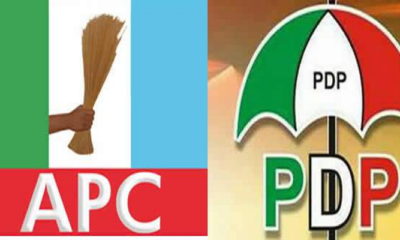
 Politics5 years ago
Politics5 years ago






